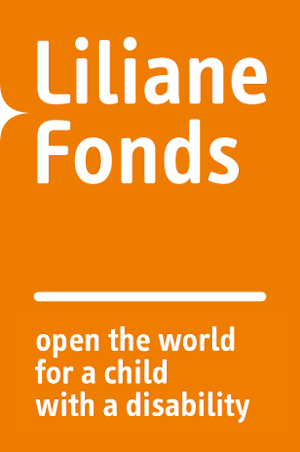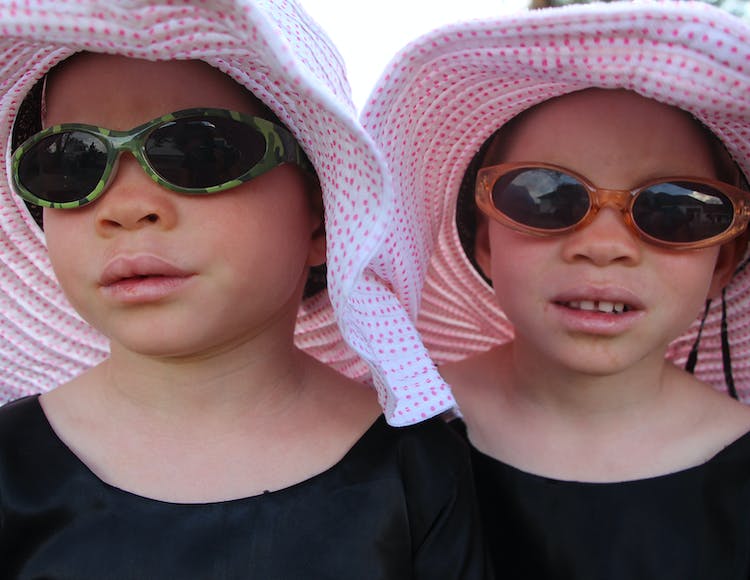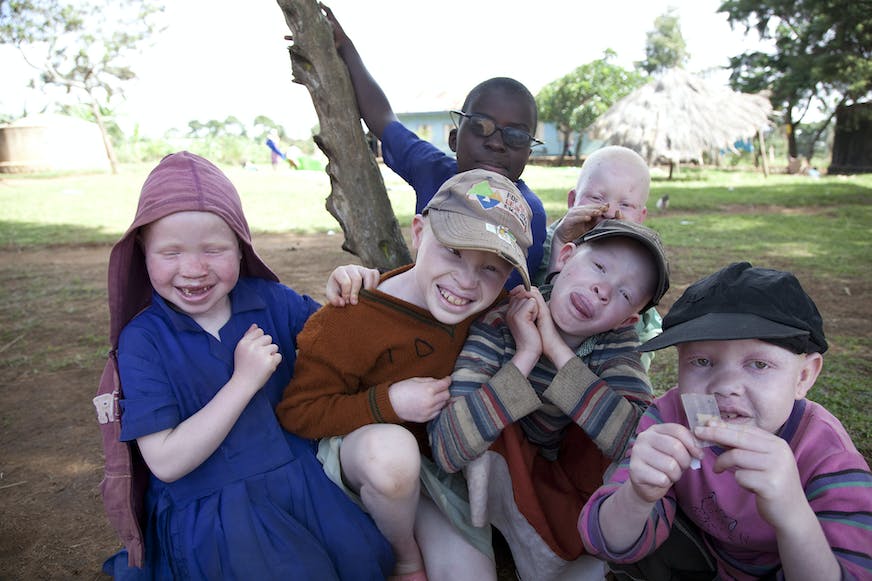Liliane Fonds: Championing Equal Rights and Opportunities for Children with Albinism in Tanzania
Albinism, a genetic condition characterized by the absence of pigment in the skin, hair, and eyes, has long been shrouded in superstition and stigma in many parts of the world. Nowhere is this more evident than in Tanzania, where persons with albinism (PWAs) have faced discrimination, violence, and social exclusion for decades. However, amidst these challenges, organizations like Liliane Fonds have been working tirelessly to improve the lives of children with albinism and ensure they receive equal rights and opportunities in Tanzania.
The Plight of PWAs in Tanzania
The history of albinism in Tanzania is dark. PWAs in the country have been subjected to horrifying acts of violence, with their body parts often sought after for use in traditional rituals. Beliefs in the magical properties of persons with albinism body parts have fueled these atrocious practices, leading to abductions, mutilations, and even murders of individuals with albinism. This dire situation has left PWAs living in constant fear for their lives. Additionally, PWAs in Tanzania face discrimination on multiple fronts. They are often excluded by their communities and struggle to access education, healthcare, and employment opportunities. The severe lack of awareness and understanding about albinism has perpetuated these inequalities, making it even more challenging for PWAs to break free from the cycle of poverty and discrimination.
Liliane Fonds and Human Rights Watch Collaboration
Recognizing the urgent need for change, Liliane Fonds, in collaboration with Human Rights Watch, embarked on a transformative project in Tanzania aimed at promoting equal rights and opportunities for children with albinism. This initiative sought to reach a wide range of stakeholders, including children, parents, caregivers, teachers, and policymakers, in an effort to protect and improve the lives of children with albinism in Tanzania.

Liliane Fonds' logo
The Albinism INclusion (ALINC) Programme
The Albinism INclusion (ALINC) Programme, has been a beacon of hope for children with albinism in Tanzania. This comprehensive project focused on advocacy and awareness-raising as its primary goals, bringing together various coalitions, including those representing people with albinism and local government representatives. Funded by the Dutch National Postcode Lottery, ALINC has made significant strides in addressing the challenges faced by PWAs.
Key Initiatives of the ALINC Programme Research
One of the foundational activities of the ALINC Programme was conducting extensive research to determine the exact number of individuals with albinism in Tanzania and the wide spectrum of challenges they encounter. This data has been crucial in guiding subsequent interventions.
Awareness Materials
To combat the prevailing ignorance about albinism, Liliane Fonds and Human Rights Watch distributed and printed digital materials aimed at increasing awareness and knowledge about the condition. These resources have helped dispel myths and misconceptions about albinism and foster comprehension.

Twins with albinism from Tanzania
Advocacy with Local Government
The ALINC Programme engaged in discussions with local government authorities to ensure the inclusive participation of PWAs in various aspects of society, such as education and other social activities.
Healthcare Initiatives
The program also facilitated the identification, referral, and treatment of PWAs for skin cancer, a common health concern for those with albinism. Skin cancer clinics and specialists were instrumental in providing the necessary medical care.
Outreach and Education
Liliane Fonds and its partners conducted outreach efforts targeting parents of children with albinism, teachers, and community members. These efforts aimed to educate them on how to protect PWAs from the harmful effects of the sun, a critical aspect of albinism care.
Legal Awareness
The ALINC Programme worked towards creating awareness among legal structures, including the police, to ensure that those who harass or harm PWAs are held accountable for their actions. This has been a significant step in addressing violence against PWAs.
Inclusive Events
Recognizing the importance of fostering a sense of belonging and equality, the program planned to have inclusive events for persons with albinism. The idea was to have these events allow children and even adults with albinism to showcase their talents, interests, and ambitions to communicate that they are equals to persons without albinism. The work of Liliane Fonds and Human Rights Watch in Tanzania through the Albinism INclusion (ALINC) Programme has been nothing short of revolutionary. This initiative has shed light on the plight of PWAs in Tanzania and taken concrete steps to combat discrimination, violence, and social exclusion.

Children with albinism from Tanzania
By raising awareness, advocating for policy changes, and providing essential healthcare and education, Liliane Fonds and its partners have made significant strides toward breaking the cycle of discrimination that has plagued PWAs in Tanzania for far too long. While there is still much work to be done, the ALINC Programme stands as a testament to the power of collective action and the possibility of positive change. With continued support and dedication, we can look forward to a future where individuals with albinism in Tanzania and beyond can thrive without fear or prejudice, enjoying the same rights and opportunities as everyone else.